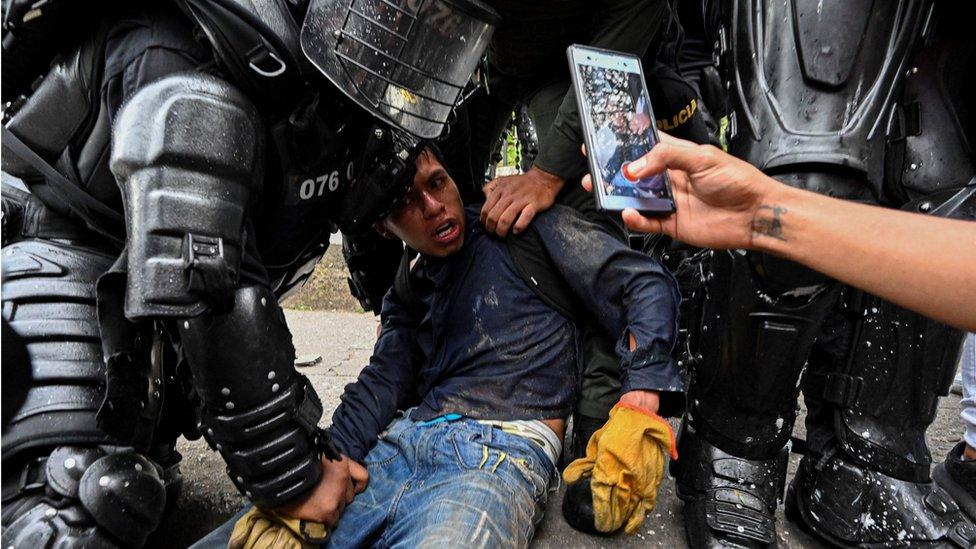Colombia protests: Rights body criticises 'disproportionate' response
- Published

The commission said there was a "disproportionate" response to the anti-government protests
An international human rights body has condemned Colombia for "excessive and disproportionate" use of force in response to this year's anti-government protests, in which dozens died.
The Inter-American Commission on Human Rights also said the security forces used "lethal force" in many situations.
The government said those cases were the exception, and that claims of abuse were already under investigation.
The protests were largely peaceful but occasionally turned violent.
They started in April amid anger over a proposed reform that would have lowered the threshold at which salaries are taxed. The plan was withdrawn but the protests grew to cover other issues including police violence and poverty.
The country's ombudsman has reported more than 50 deaths linked to clashes between the security forces and demonstrators, though human rights groups say the number is higher. About 2,300 civilians and members of the security forces have been injured.
The long-awaited report by the commission,, external an autonomous arm of the Organization of American States, was published based on a visit in June, when it interviewed more than 500 people.
The allegations of human rights violations include the indiscriminate use of firearms by police against both protesters and bystanders, gender-based violence and claims of sexual abuse.
"The commission confirmed that, repeatedly and in various regions of the country, the response of the state was characterised by excessive and disproportionate use of force," the commission's president, Antonia Urrejola, said at a news conference.
"In many cases those actions included lethal force," she added.
From May: Anti-government protests turn violent in Colombia
The report urged the government to investigate the accusations of abuse, punish those responsible and compensate victims and their families. It also said the national police should be removed from defence ministry control, a long-held demand from protesters.
Reacting to the report, the Colombian government said the constitution allowed the police to be managed by the defence ministry, and that officers were not allowed to use lethal firearms at protests.
President Iván Duque has come under criticism for how the security forces responded to the demonstrations. Speaking to journalists, he said he was "respectful of peaceful protest" but not "vandalism [or] low intensity urban terrorism".
He rejected a recommendation to revoke an automatic ban on the use of road blocks as a form of protest, saying: "No-one can recommend that a country be tolerant of criminal acts".
The major protest groups have temporarily suspended demonstrations.
ON THE GROUND: Women protesters on sexual violence
EXPLAINER: What is fuelling people's anger?